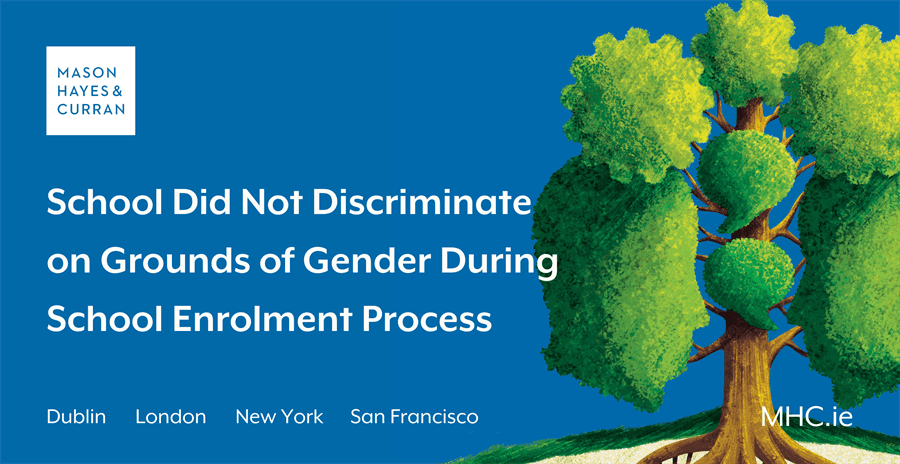
In A Father v The Board of Management of a Secondary School, a separated father complained that he had been discriminated against on the ground of his gender when the school enrolled his daughter even though he had objected to her enrolment. The Circuit Court held that he had not established that he was treated in such a manner because he was a man. This judgment provides welcome clarity for schools who are required by law to enrol students in accordance with their enrolment policy but are regularly faced with a situation where one parent wishes to enrol a child and the other parent objects.
Facts
The father is the joint legal guardian of his daughter. In January, 2017 his daughter’s mother applied for her enrolment in the school commencing September that year. The father became aware of this application in April and contacted the school and informed them that he did not consent to her enrolment in the school. The school responded and informed the father that it could not intervene in any family law disputes between legal guardians regarding attendance or enrolment at the school; and that such disputes could only be resolved by agreement between the parents, or by way of a court order. The school went on to acknowledge the father’s legal status as joint guardian and confirmed that he would receive all communications and documentation from the school that his daughter’s mother received. The father wrote again to the school in August objecting to his daughter’s enrolment and then made a complaint to the Workplace Relations Commission (WRC) under the Equal Status Acts 2000 – 2015, complaining that he had been discriminated against by the school on the grounds of gender, civil status and family status. The school opposed this claim on the basis that it was required by the Admissions Act to enrol the student once the application complied with its enrolment policy and that if it did not do so then it would face a Section 29 Appeal for a refusal to enrol.
WRC Decision
The Adjudication Officer found that the father had raised an inference that he was treated less favourably than his daughter’s mother on the ground of gender, and that he was not convinced that the school was obliged by statute to enrol the child in the circumstances of her father’s objection.
Circuit Court Decision
The school appealed the finding that the father had been discriminated against on the ground of his gender to the Circuit Court. The Judge in the Circuit Court decided that the central question in the case was whether the school’s decision to enrol the student was altered or motivated in any way because the father was a man and not a woman. The Court found that there was no evidence to support the contention that the father “was treated in such a manner because he was a man and that a woman in a similar position would have been dealt with significantly less heavily” by the school. The Court allowed the School’s appeal, holding that the father had not been discriminated against by the school on the ground of gender. The Judge commented that it was regrettable that neither parent took any action to make the appropriate application to the family law courts to determine the issue as they could not resolve it themselves.
Conclusion
While the facts in every case are different, this decision provides welcome guidance for schools that find themselves in a position where one parent is objecting to enrolment of a student and alleging discrimination. The best way for parents to resolve this issue is through agreement or the family law courts.
For more information, please contact a member of our Education team.






